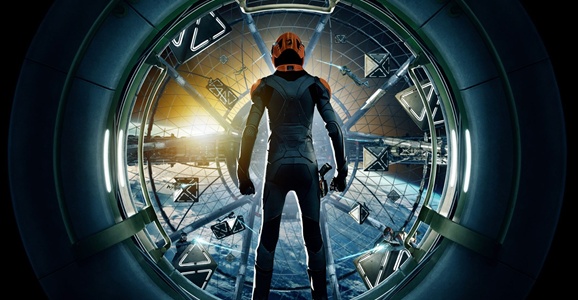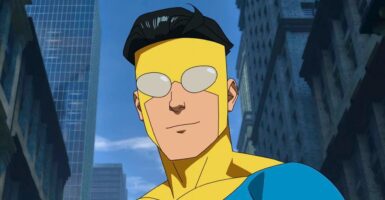Orson Scott Card Is Hard At Work On New Ender’s Game Books
This article is more than 2 years old
 What does every studio do when they release a moderately successful movie? That’s right, they try to turn that sucker into a franchise, popping out endless sequels until they’ve squeezed every last cent out of the property. And this is what it appears Summit Entertainment and Lionsgate are going to try with Ender’s Game. Author Orson Scott Card, who wrote the celebrated novel the film is based on, is even hard at work pumping out a new sequel.
What does every studio do when they release a moderately successful movie? That’s right, they try to turn that sucker into a franchise, popping out endless sequels until they’ve squeezed every last cent out of the property. And this is what it appears Summit Entertainment and Lionsgate are going to try with Ender’s Game. Author Orson Scott Card, who wrote the celebrated novel the film is based on, is even hard at work pumping out a new sequel.
Card’s Enderverse is already a sprawling affair, encompassing more than a dozen short stories and novels. These new works, however, sound like they’ll be more traditional sequels, following shortly after conclusion of Ender’s Game. The extant works in the family aren’t always as straightforward. There are prequels, asides, and even the most direct follow up doesn’t take place until after a significant amount of time has passed. One book even chronicles the action of Ender’s Game, only from the perspective of another character, Bean. The 1985 original is a classic, and well loved, but reviews on the rest are mixed at best. According to Card, the new additions will be “about what happens to Battle School after the International Fleet loses its purpose of war.”
These new books are also an attempt to cash in on the hottest market in publishing, the coveted young adult demographic. From the way that the film was marketed, the studio was hoping Ender’s Game would be the next Hunger Games and kick start a lucrative new franchise. That wasn’t exactly the case. The film won the box office wars on its debut weekend, but the take was a modest $28 million. Compare that to a projected $150 million plus for The Hunger Games: Catching Fire later this month, and take into account a hefty, $110 million price tag, and many are skeptical that there will be a sequel at all.
In addition to the less than earth-shattering opening, the film failed to find its intended audience. More than half of the ticket buying audience was over 25-years-old, which makes sense when you consider there’s an adult generation that came up reading Ender’s Game.
About the next book, Card says, “It’s for a YA audience.” That much is a no brainer. Not only is that the most active book-buying segment of the population, but if it were released today, that’s where publishers would stick Ender’s Game. It is better written and skews more towards the literary side of the equation than much of what passes as YA fiction these days, but given the age of the characters and approach, that’s where it would fall.
We’ll see how new books are received, and if Orson Scott Card can speak to a new generation like previous ones, especially given what they know about the author.












